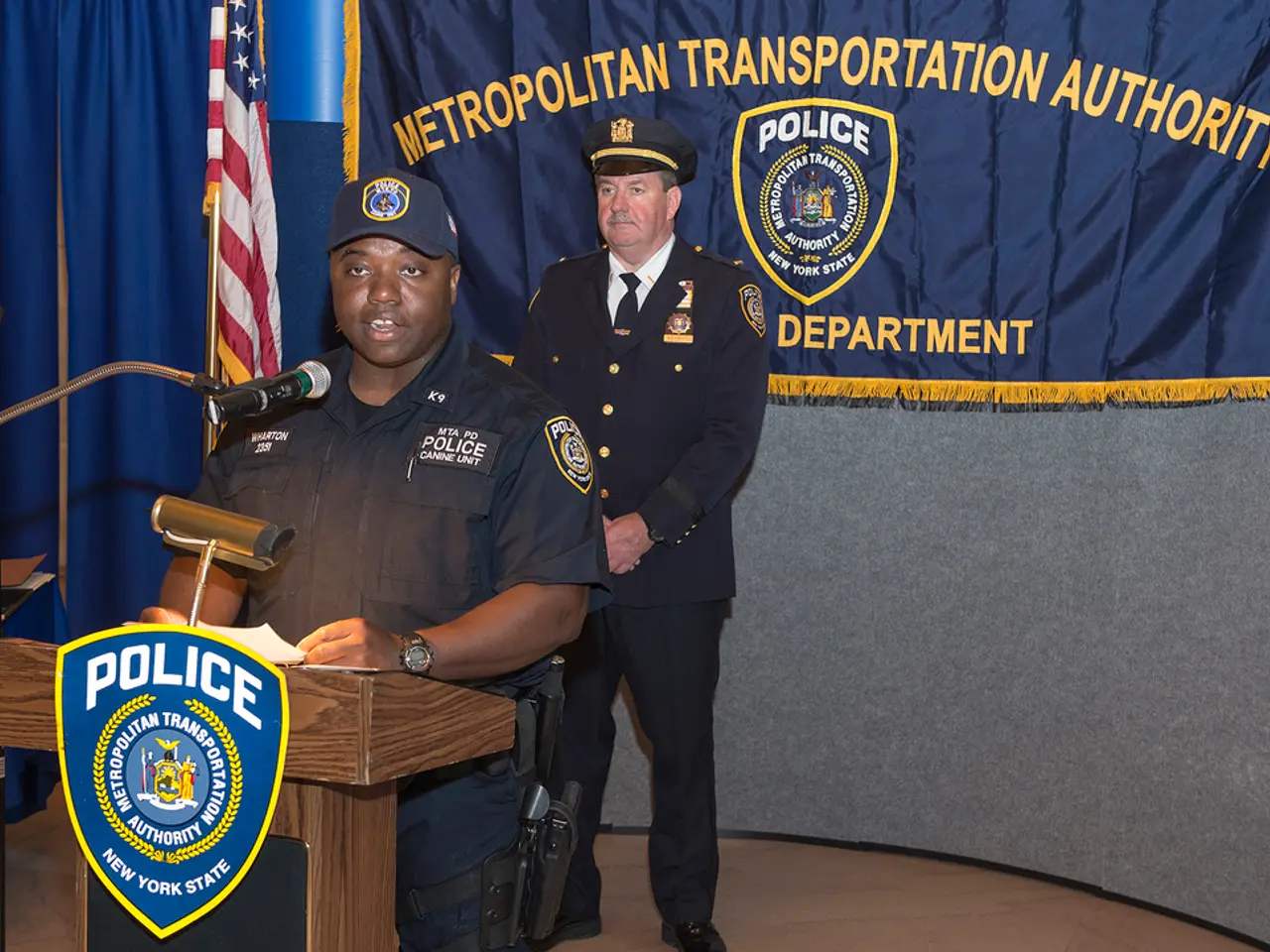Trump's tightened measures in Washington D.C. raises concerns, as expressed by a former Capitol Police officer
In a move that has sparked controversy, President Trump has announced the deployment of the National Guard and the Metropolitan Police Department (MPD) in Washington, D.C., under the pretext of a "Crime Emergency." This decision, however, is met with criticism for potential risks to community policing relationships and crime rates.
Damaging Community Policing Relationships
The presence of heavily armed National Guard troops alongside local police could create an atmosphere of intimidation rather than cooperation, eroding the trust essential for effective community policing. Retired U.S. Capitol Police officer Harry Dunn warns that this move could tarnish police relationships in the community.
Undermining Legitimacy and Cooperation
Aggressive enforcement measures may lead residents to view law enforcement as an occupying force instead of protectors, which can reduce cooperation in crime prevention and investigations. Dunn shares this concern, stating that the National Guard is not equipped to handle situations requiring discernment, de-escalation, and specialized approaches.
Potentially Increasing Tensions and Unrest
Such deployments can escalate tensions, especially if perceived as politically motivated or disproportionately targeting certain communities, possibly leading to more unrest and higher crime and safety challenges.
Questionable Impact on Crime Rates
While intended to deter crime, these deployments may not address root causes such as socioeconomic conditions or systemic issues in policing; therefore, their effectiveness in reducing crime rates is uncertain and possibly short-term.
Crime Statistics
Contrary to President Trump's claims, crime in Washington, D.C. has actually decreased. According to MPD data, violent crime is down about 26% and overall crime is down about 7% compared to the same time last year. Notably, crime in the city reached a 30-year low last year, as reported by the MPD and the U.S. attorney for D.C. in January.
Historical Context
Harry Dunn, who served in the U.S. Capitol Police for 15 years and retired in 2023, is particularly concerned about President Trump's statement that police officers will be allowed to do "whatever the hell they want." During the January 6th riot at the U.S. Capitol, Dunn and other officers waited for backup that was not provided by the president.
This news article was edited by Obed Manuel, and the radio version was produced by Milton Guevara and Nia Dumas. The copyright for the article belongs to NPR in the year 2025.
Politicizing Law Enforcement
President Trump's announcement of the National Guard and MPD deployment in Washington, D.C. is questioned for potential political motives, as it could exacerbate existing tensions and perception of biased policing thereby straining relationships within the community.
Policing amidst General-News and Politics
The line between law enforcement and political agendas may blur under such circumstances, potentially influencing public opinion and trust towards the police, as well as impacting the effectiveness of community policing strategies centered on cooperation and prevention.






